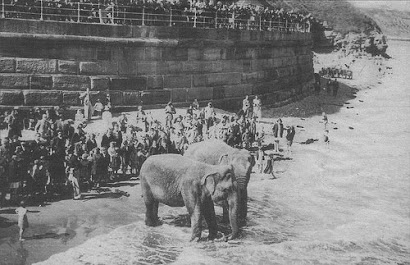 During the 18th century the Quarantine or Plague Bible was commonly used in England as the first measure of defence against the deadly and highly contagious disease The Plague.
During the 18th century the Quarantine or Plague Bible was commonly used in England as the first measure of defence against the deadly and highly contagious disease The Plague. The first Act of Quarantine was not officially established in England until 1710, some forty years after the country had last suffered at the hands of the Plague. The act itself would undergo several further amendments throughout the 1700’s, each one becoming progressively more stringent. Until eventually in 1824 the laws were finally relaxed, making the act of quarantine only at the discretion of the privy council.
Up to this point a ship suspected of carrying the plague was placed in isolation for forty days at a distance of up to three miles off shore. The problem with this was that the Master of the quarantined vessel had to then present a report to the local port authority within the first 24 hours, which meant that at some point the Customs Official dealing with the case would have to come into physical contact with the ship’s crew, leading to the possibility that he could catch the disease himself.
So to resolve this problem the Plague Bible was introduced and Whitby, like all major sea ports that dealt with imported goods, immediately began using this rather simplistic and very honest method as a means of verifying whether it was necessary to quarantine a ship or not.
A Boarding Officer (tide surveyor) and a tide-waiter plus a crew of six would use a purpose built coble - a small locally built fishing boat - to a approach the quarantined vessel. Making sure that they were to the windward side of the ship, the Boarding Officer would then hail the ship’s Master.
Then, using a boat hook to hold up a metal encased copy of the New Testament, the Customs Official would make the Master swear an oath upon the Bible that neither he nor any member of the crew needed quarantine. On assuming that the ship’s Master was a Christian, and also that he was actually telling the truth, the vessel was then deemed safe enough to board.
It is also worth noting that in some sea ports across England a copper encased Bible would be fixed to a line and passed over to the quarantined vessel. Once the ship’s Master had sworn his oath, the Bible was cast overboard and dragged back through the sea to the official’s boat, a process which was believed to cleanse the book of any disease and impurities it might be carrying.





1 comment:
Wow! Can't say I'm sorry that method of disease control is no longer utilised today! If the sea was said the cleanse the bible of all bacteria (unlikely) then why would they not have used the ocean in the treatment of the disease? Just curious... or maybe they did?
Post a Comment